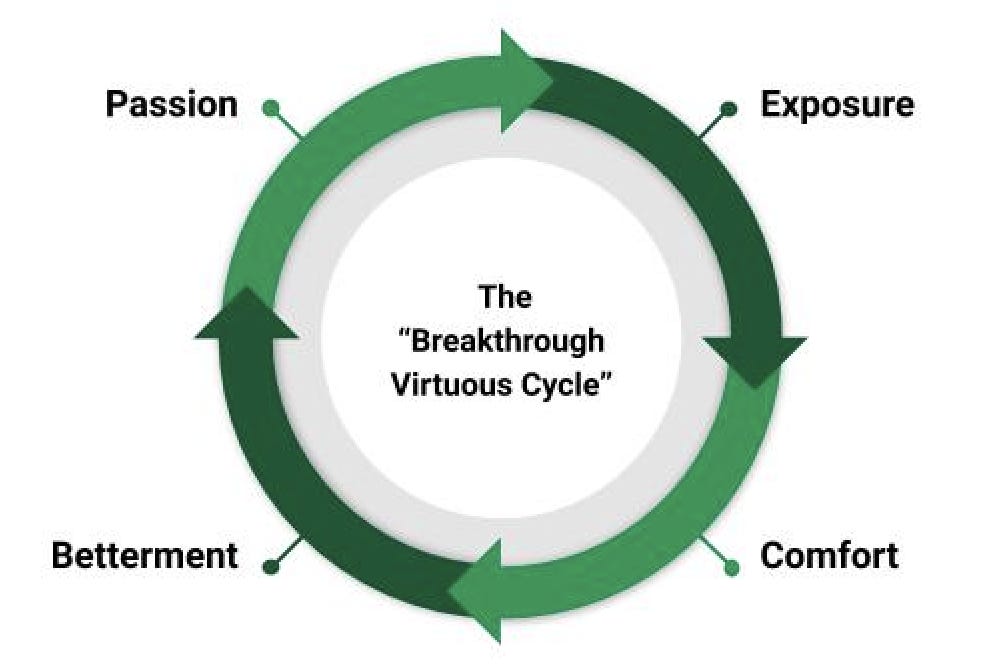My Career Transition (PART II)
This is PART II of the My Career Transition 3 part series:
PART II - The Strategy (THIS POST)
PART III - The Preparation
--
So I’ve made my decision to transition into product. Now what?
The Strategy
I needed a strategy. But wait, what does a strategy even mean? From dictionary:
strat·e·gy
/ˈstradəjē/
noun
a plan of action or policy designed to achieve a major or overall aim.
In my own interpretation, it’s an overall game plan to get you from point A to B and guide how you win. In the context of a “product strategy”, point B (which will shift overtime) could be getting the first 1M users, hitting X revenue, reaching profitability etc etc. In the context of “transition into product”, point B should very well be landing a product role you like and can be successful in. And a strategy is not one thing. It’s a package of things across several key dimensions that matter in your own context, and the game you’re trying to win.
Am I losing you? Let’s get back to my story to be more tangible. In the ancient age back when I first started thinking of transition, most product managers I knew came from business backgrounds (i.e. business schools, mostly top tier), and almost all job descriptions I read required it too. It obviously has shifted a bit overtime and now we have much more PMs from technical and all kinds of backgrounds, I believe mainly because of the gradual expansion of a PM’s role (to be more end to end) as well as how tech as whole has been eating into many more industries (which appreciates various backgrounds). But at the time it essentially meant that the probability of me even getting noticed is....ZERO. To be more explicit I had the following show stopping disadvantages:
Lack of business degree (and frankly, business/market understanding)
Lack of people skills
Lack of hands-on product management experience (also knowledge about how a PM actually operates)
So naturally my #1 strategy would be about how to close these gaps.
Disadvantage #1 - Lack of Business Degree & Understanding
It was a popular topic at the time (it might still be one today): Should we invest 2 years (and money) into business schools, or should we develop experience on the job? It wasn’t an easy choice for most because there are definitely pros/cons/risks/rewards in either option. “Luckily” for me, it was an easy one. There was no way I could go to business school because I don’t have the capital. Period. I live on my paycheck and I’ll die starved the moment I stopped getting paid. That left me with the only option to stay on the job and hopefully be exposed to business context more. I’ll speak about the on-the-job part of the learning and transition, but off-the-job, I was determined to read more about business - the products, the markets, the customers, the financials, starting from where I’m interested. The tech industry, the major players, their products and business models, their strategy, etc. Read, think, read some more, think some more, repeat. This not only developed my knowledge, but also developed my interests about those topics over time.
Disadvantage #2 - Lack of People Skills
It probably goes back to my background and personality. I came from a technical background (when I’ve talked to computers more than people), and I’m deeply introverted (as said in this blog, remember?). If you have watched my talk where I encouraged us to embrace our unique self vs attempting to change it, you’d know my only option is to work with them instead of changing who I was. So my main strategy was to look for on-the-job project opportunities where I could develop the skills (communication, leadership, organization, influence), even as a software engineer. E.g. Leading a technical project, organizing team building, presentations, etc. The more I was exposed to these activities, the more comfortable I was engaging with people; the more comfortable I was the better I was at it; the better I was the more passionate I was engaging with them. Then of course I’ll engage even more. That’s how the virtuous cycle was formed.
Disadvantage #3 - Lack of Hands-On Product Management
This is typical chicken-and-egg: No experience, no hire. No hire, no experience. How did I go about breaking it? It comes down to 3 things. First, work with good PMs. Second, gain experience without the title. Third, break into adjacent roles first. These are all connected, so let me elaborate. I’ve worked at some major tech companies where not only were there great software engineers (consider myself one of them!), there were at least some great PMs. One of the very first steps I took was to deliberately observe how they operated and took notes. Then let’s face it: product manager is heck of a crazy busy role I hope you’ve realized by now. It’s pretty hard for one to say no to someone who voluntarily offers to help. That was what I did. I saw a gap, I offered to help, and I did the job! Lastly, when I started to gain experiences even though in pieces, I’d be exposed to roles closer to product management (aka “adjacent roles'') which allowed me to gain relevant experiences even more quickly. For me, it was technical program management, largely because of my technical background that still helped.
--
With the gap-closing strategies above to overcome my disadvantages, I realized that, gradually over time, more product opportunities started to appear and knock on my doors.
It’s obviously an over-simplified version of my “break into product” strategy, and I focus this article solely on the “gap-closing” dimension. Like I mentioned, you will need a package of plans in your strategy to win. And I hope to dive deeper into more specific topics in this blog.
To sum it up 3 things for you to take away:
Be crisply clear about your point A (your current state) and point B (where you’d like to be)
Break it down into key dimensions. Think about how you might win in each (which is uniquely yours)
Strategy execution (point A->B) takes time and is an iterative process. Use the same agile iterative mentality as if you’re managing a product (like a good PM!)
How do I get prepared for upcoming opportunities I worked so hard for? Expect it in My Career Transition Part III - The Preparation coming soon!
If you like this post, subscribe for future posts and share this with your network!




